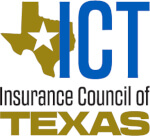Fraud
P&C Insurance Fraud


Insurance fraud in Texas is difficult to estimate accurately, as it is an inherently clandestine activity. However, according to the National Insurance Crime Bureau (NICB), Texas is one of the top five states for property and casualty insurance fraud, along with California, Florida, New York, and Georgia. These five states account for 44% of all “questionable claims.” From 2020 - 2021, questionable claims rose by 14%, with homeowners claims accounting for 66% of questionable claims.
In 2019, Texas had 7,369 reported cases of property and casualty insurance fraud, which resulted in losses of over $107 million. This represents a significant increase from the previous year when there were 6,741 reported cases of property and casualty insurance fraud, resulting in losses of over $99 million. Natural disasters provide prime conditions for fraudsters. Scams usually include unsolicited offers, waiving the deductible, cold calls, overbilling, or inflated billing, and faked or inflated damage
There are many types of insurance fraud that are commonly committed, including:
Arson – Involves deliberately setting fire to a property to collect insurance payouts. According to the Texas Department of Insurance, arson accounts for a significant proportion of insurance fraud in the state and can result in losses of millions of dollars.
Staged Accidents – Involves individuals deliberately causing or faking car accidents to collect insurance payouts. Other types of fraud include fake theft claims, fake damage claims, and exaggerated injury claims.
The Texas Department of Insurance is responsible for investigating and prosecuting instances of property and casualty insurance fraud in the state. The department has a dedicated fraud unit that is staffed by experienced investigators who are trained to identify and investigate instances of fraud. The department also works closely with law enforcement agencies, insurance companies, and other stakeholders to prevent fraud and bring perpetrators to justice.
One of the main challenges in fighting insurance fraud in Texas is the difficulty of detecting and proving fraudulent activity. This is particularly true in cases where fraud is committed by organized crime groups or sophisticated criminal networks. These groups often have extensive knowledge of the insurance industry and can use their expertise to evade detection and avoid prosecution.
To combat this problem, the Texas Department of Insurance has implemented a range of measures aimed at preventing fraud and improving detection rates. These measures include:
- Educating the public about the dangers of insurance fraud and how to report suspected cases.
- Working closely with law enforcement agencies to share information and resources.
- Encouraging insurance companies to report suspected cases of fraud and providing them with support and resources to investigate these cases.
- Increasing the use of data analytics and other advanced technologies to identify patterns and anomalies that may indicate fraudulent activity.
- Conducting regular audits of insurance companies to ensure that they are complying with regulatory requirements and that their anti-fraud measures are effective.
Despite these efforts, insurance fraud remains a significant problem in Texas and across the United States. To combat this problem effectively, it is essential that all stakeholders work together to improve detection, strengthen anti-fraud measures, and bring perpetrators to justice. By doing so, we can help to protect individuals and businesses from the financial losses that result from insurance fraud and ensure that the insurance industry remains strong and resilient.
Contractor Fraud


Research – Before hiring any contractor or roofer, check their credentials, read online reviews, and ask for references. You can also check with organizations like the Better Business Bureau to see if any complaints have been filed against the contractor. This research can help you avoid contractors who have a history of fraudulent activity.
Beware of high-pressure tactics – If a contractor is pushing you to sign a contract or pay a deposit immediately, this could be a sign of fraudulent activity. Legitimate contractors will give you time to review the contract and decide.
Get everything in writing – A legitimate contractor will provide you with a written contract that outlines the scope of work, materials to be used, timeline, and payment terms. This contract can protect you if the contractor fails to deliver on their promises. It is advised you obtain three estimates in writing to be able to properly compare bids.
Avoid paying upfront – Many fraudulent contractors will ask for a large upfront payment before beginning work, but legitimate contractors typically do not require this. Instead, pay in installments as the work is completed.
Beware of contractors who offer to waive your insurance deductible –This is illegal in Texas and many other states and could be a sign of fraudulent activity.
Trust your instincts – If something seems too good to be true, it probably is! If a contractor or roofer is making promises that seem unrealistic, or if you feel uncomfortable with their behavior, trust your gut and look for another contractor.
Protecting yourself from fraudulent contractors and roofers after a storm requires research, caution, and common sense. By taking these steps, you can avoid falling victim to fraudulent activity and ensure that your home repairs are done by a legitimate and trustworthy contractor.
Fraudulent Auto Repair Shops


Research – Before selecting an auto body repair shop, research online and check their reputation with the Better Business Bureau, consumer review websites, and social media platforms. Look for positive reviews and feedback from previous customers.
Get multiple estimates – Obtain multiple estimates from different repair shops to ensure that you are getting a fair price for the repairs. Make sure the estimates are itemized and include all necessary repairs.
Ask for references – Request references from the repair shop and contact previous customers to ask about their experience and satisfaction with the repair work.
Check certifications – Verify that the repair shop is certified by the National Institute for Automotive Service Excellence (ASE) or another reputable organization.
Avoid high-pressure sales tactics – Be wary of repair shops that use high-pressure sales tactics to persuade you to agree to additional repairs or services that may not be necessary.
Review the repair work – Before leaving the repair shop, thoroughly inspect the repaired areas of your vehicle and test drive it to ensure that it is safe and functioning properly.
By following these tips, you can protect yourself from fraudulent auto body repair shops and ensure that your car is repaired to your satisfaction.
